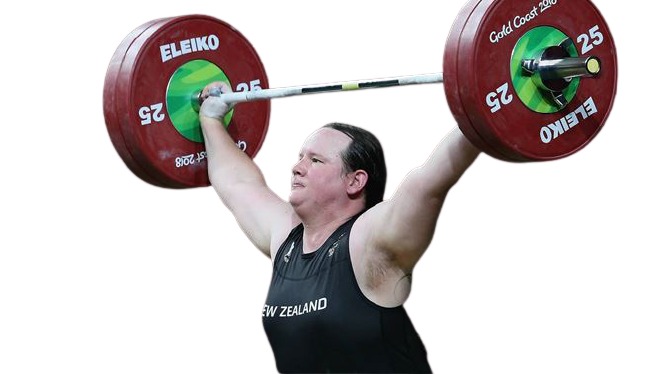On July 26th, I skyped my brother in the UK. It was his birthday. Inevitably, the subject of the Olympics came up, and knowing that I am a sports fanatic, he asked if I was watching. I said no.
“What? Not the sailing, the rugby, the equestrian? Not those divers with the great bodies? None of it?” he asked incredulously.
“None of it.”
“Whyever not?”
So I explained that we have a transgender weightlifter in the mix and I didn’t want to watch it. In fact, this whole debacle had soured the entire event from my perspective.
He thought this was hilarious. He asked for Hubbard’s details and said he would be sure not to miss it. I was horrified.
What was it about the Laurel Hubbard debate that has us all curling up into the foetal position in horror?
I have met transgender people before. I know two of them; both men ‘transitioning’ to women, both perfectly pleasant and decent people who just want to live their lives in their own way. If the long blonde hair and the 5 o’ clock shadow is a little odd to look at, it is hardly the end of the world. I’ve seen more facial hair on women purporting to be women, so really, this is no big deal.
But what was it about Hubbard that had us all screaming inside? Why was I enormously relieved when she crashed out of the Commonwealth Games in 2018 with a shoulder injury? What was it that made us all cringe, when she was just another person wanting to live her life in her own way?
The answer is simple. It was all about fairness. It is unfair to allow biological men to compete as women. Identifying as a woman does not make it so biologically, and a man competing in women’s sports gives an unfair advantage to that competitor, depriving biological women of the opportunity to win big.
But somehow, the true situation regarding Laurel Hubbard got lost in all the noise.
Once she had been selected, the world of social media broke into two camps: one supporting Hubbard and trying to cancel out anyone who disagreed, and one supporting fairness in sport and decrying the decision to let her compete. Somewhere, I read a story about a female weightlifter who deliberately dropped 18 kilos in weight to fit into a lower weight class, so as to avoid being in the same group as Hubbard. I took this as further proof that Hubbard was virtually guaranteed a gold medal but that it would be a gold medal awarded unfairly.
Now I realise that I was wrong on both counts.
On the night that Hubbard was to compete, I did watch the equestrian events and the divers with those great bodies but made sure I went to bed before the weightlifting. The next morning, I woke up, ready to cringe at the announcement of our latest gold medal. As you all know by now, there wasn’t one. In fact, there was probably never going to be one. It turns out that Hubbard’s was only ever an outside chance of a medal, having achieved only the fifth-highest qualification weight of 285 kgs. She was lifting at much lower weights than the top female weightlifters in the world. The winner, China’s Li Wenwen, won gold with a combined total of 320kg, 37kg clear of silver medallist Emily Campbell of Great Britain, and 35kgs heavier than Hubbard’s qualification lifts. Hubbard was never really in the running, but with all the noise, from both camps, it seems that we never got to realise that.
So what was all the fuss about?
Fairness? Hubbard did not have a competitive advantage. Her masculine body may have deprived another weightlifter of a chance to compete, but it is unlikely that it deprived anyone of a medal. A matter of principle? Yes, possibly, but Hubbard met all the rules imposed by the NZOC, which is all anyone is asked to do. There is the bigger issue, of course, of allowing men to compete in women’s sports, which has the potential to do such damage to women’s sports that the whole thing will become a joke. That is a serious issue, but not one that can be laid entirely at the feet of Laurel Hubbard.
To be honest, I think we all overreacted spectacularly. We thought this was a disaster of enormous proportions just waiting to be unleashed, a terrible embarrassment for all New Zealanders. It ended up being the biggest non-event of the Tokyo Olympics.
By the time the next Olympics roll around, I feel sure that the issue of transgender competitors will have been examined much more thoroughly by all sporting bodies and we may have a set of rules that are fairer to all parties. I certainly hope so, but if we do, we can partly thank Hubbard for bringing that discussion out in the open and breaking new ground for sports, women and transgender people overall.
And finally, I would like to congratulate Hubbard on her grace and dignity at the Olympics themselves. Having admitted to being ‘overwhelmed’ at the event, one cannot help but wonder at the pressure she must have felt, but she put on a brave face, and was gracious in defeat. Far from being embarrassed by the whole thing, I am extremely impressed by her dignity. None of it can have been easy.
Now I wish I had stayed up and watched it after all.
Please share this article

